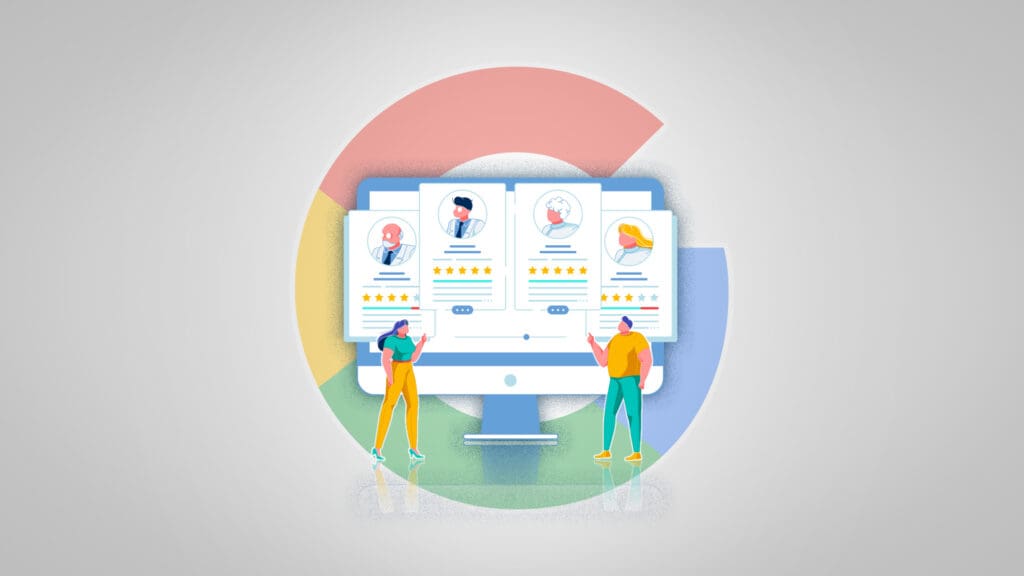
Top 5 SEO Issues That Could Be Hurting Your Lead Volume (And How To Identify Them)
Many small and mid-sized businesses, including personal injury law firms, put a lot of effort into organic search (SEO). However, many SEO issues may lurk beneath the surface and often hold firms back from reaching their full ranking potential.
In this edition of Plain Talk, we’ll review the top SEO issues and challenges that most law practices overlook. We’ll explain why they can negatively impact organic search and how to address them.
- User Experience (UX)
- Website Speed and Core Web Vitals
- Mobile Usability
- Local Search
- Content Quality and Relevance
- Get Expert Help Solving Your SEO Issues
1. User Experience (UX)
According to Forrester research, every $1 invested in user experience (UX) results in a return of $100 (ROI = 9,900%)
Your website is a complex piece of technology. It has intricate coding, including completely different languages like HTML, CSS, JavaScript, and more. If you see “https” in your URL, there are highly advanced security measures in place to protect against various threats like hacking, data breaches, and malware. On top of this, your site is constantly interacting with servers, collecting data, and performing a number of other tasks that you are probably not even aware of.
As sophisticated as your site is, the user is left on their own to face whatever you’ve placed in front of them. It doesn’t come with a training manual. There aren’t any seminars to walk people through how to get to what they want. The user is effectively helpless and alone, relying only on their past experiences and their wits to get them through it all.
Why investing in UX matters
When you invest in a good UX, things like navigating through your site, calling, chatting or filling out a form become intuitive. Many times, although important actions seem straightforward, for the end-user, they can actually be quite complicated. After all the effort you’ve put into getting someone onto your site, they leave. That means that case you could have signed is gone—forever.
Personal injury firms are increasingly realizing the significant benefits of prioritizing user experience on their websites. By investing in a seamless and enjoyable user journey, these firms not only enhance on-site conversions and increase case sign-ups but also establish a distinct competitive edge when engaging potential clients. Importantly, this user-centric approach doesn’t just have benefits during on-site interactions. UX also plays an important role in improving the firm’s visibility and keyword rankings in Google search results. For more on why that’s important, you can check out our article on personal injury firm SEO.
By focusing on user experience, personal injury firms can achieve long-term, sustainable growth while simultaneously outperforming competitors and attracting more clients, both on-site and through enhanced search engine visibility.
User experience holds such significance that every topic discussed here contributes to it in some way.
2. Site Speed and Core Web Vitals
BrowserStack research shows that 40% of visitors will leave a site if it takes more than 3 seconds to load.
Site speed is also part of the user experience and plays a significant role in retaining users on your site. Site speed issues can also cause your organic keyword rankings to suffer, limiting your ability to rank in search engine results. It’s a big deal, especially when thinking about mobile devices, which Google prioritizes over desktop.
Core Web Vitals, which include site speed, measure how well your site is delivering on user experience and technical performance. These metrics offer valuable insights into areas for improvement and refinement. There are a number of technical aspects to Core Web Vitals. However, Google also does a nice job of summarizing where a site stands on a high level for those who are not as technically inclined.
How does your site perform according to Google?
A quick way to check your site speed and Core Web Vitals is to perform a PageSpeed Insights test. Visit PageSpeed Insights and simply type in your site’s URL.
The output from this test will give you all of the Google Core Web Vitals from your site for both mobile and desktop. It will let you see if your site passed or failed the test and what steps you can take to resolve any issues you might discover.

If you’re unsure how to resolve the issues, you can always contact us and we can talk through how to optimize your site.
3. Mobile Usability
In May 2023, mobile devices generated 65.49% of global website traffic (Similarweb, 2023). Not having a responsive design is rated as a top reason visitors might leave a website, according to a survey of 200+ web designers and freelancers.
With the rise in mobile device use in 2023, Google fully transitioned to mobile-first indexing. This means that Google favors mobile-friendly designs and only crawls the mobile version of your website and not the desktop version (unless your site doesn’t function on mobile). It’s extremely important to ensure your site is designed and developed as a mobile-first experience for the user and Google. Your search engine rankings and volume of cases generated from your site depend on a well-crafted website that functions across all devices.
The best way to accomplish a mobile experience that Google and your users will reward is to build your site in a responsive design format. This will allow your content to automatically respond to the size of the user’s device, creating a seamless and consistent experience for the user, regardless of what type of device they’re using.
4. Local Search
60% of smartphone users have contacted a business directly using the search results from their Google Business Profile, according to Think with Google.
Local SEO aims to enhance a business’s visibility in local search results, particularly in the “local pack” or “map pack.” This is the prominent section of search engine results pages (SERPs) that displays local businesses related to a user’s query. By optimizing various factors such as name, address, and phone (NAP) consistency, website content, and local citations, personal injury firms can increase their chances of appearing in these local search listings when users search for relevant services in their area.
A significant trust factor
Remember, Google categorizes a personal injury law firm as a “Your Money or Your Life” (YMYL) business. This means that a search query regarding personal injury law will be scrutinized and held to higher standards. Here’s what Google says about YMYL queries:
“Where our algorithms detect that a user’s query relates to a ‘YMYL’ topic, we will give more weight in our ranking systems to factors like our understanding of the authoritativeness, expertise, or trustworthiness of the pages we present in response.”
Google ‘How Google Fights Disinformation” White Paper
This means that a significant trust factor for Google is the consistency of NAP across all directories and citations. An analogy for this is imagining Google as a detective seeking to verify the identity and credibility of your personal injury law firm across the internet. One way it accomplishes this is by scrutinizing the NAP information. Here’s a breakdown of how it operates:
- Web Crawling: Google’s software, called web crawlers (or spiders), scour the internet, indexing information from websites, directories, and social media profiles.
- NAP Matching: When the crawlers find your law firm’s NAP, they compare it to the information you’ve provided on your Google Business Profile. This is essentially Google’s central hub for your business information.
- Consistency Check: If your NAP is exactly the same (including any abbreviations) across all locations online, that’s a good sign for Google. It means they’re more confident they’re looking at the one and only law firm, and that law firm can be treated as a trusted source. As a result, they can be given priority to rank in the local pack over competitors that are not as consistent.
How consistent are your directory listings and citations?
Want to see how consistent your directory listings and citations are? Use our free tool to check the accuracy of your name, address, and phone number across multiple directories.
5. Content Quality and Relevance
Content marketing generates three times as many leads as traditional outbound marketing but costs 62% less, according to the Content Marketing Institute.
High-quality, relevant content is essential for engaging visitors and establishing your authority in the field of personal injury law. If your website lacks informative and valuable content, visitors may be less likely to trust your experience.
Before diving into content development, it’s important to first establish a strategic framework. Clear goals must precede an effective content marketing strategy. Consider objectives such as enhancing brand awareness, fostering trust, and educating your target demographic. When crafting a strategy for local SEO, it’s also important to recognize that achieving these goals may require tailored approaches for different markets.
Some key things to focus on when approaching SEO-optimized content
- Write for the user first and Google second. Google rewards highly relevant content that provides an excellent user experience.
- Leverage Google’s E-E-A-T (Experience, Expertise, Authoritativeness, Trustworthiness) and Helpful Content guidelines.
- Purge “unhelpful content”. Having relatively high amounts of unhelpful content might cause other content on the site to perform less well in search to a varying degree. Removing unhelpful content might contribute to your other pages performing better.
- “Measure twice and cut once” by conducting thorough keyword research to ensure that your content includes relevant keywords and can be found in SERP.
- Include compelling and informative meta titles and descriptions. These must accurately represent the content of each page, enticing users to click through to your website.
- Optimize images with descriptive filenames and alt text to improve accessibility and enhance SEO.
- Create internal links between related pages on your website (like you see in this article). This improves navigation and helps search engines understand the structure and hierarchy of your content. It also helps users find more useful content.
- Regularly update and refresh your content to keep it relevant and up to date. This signals to search engines that your website provides valuable and timely information.
- Monitor and analyze your website’s performance using tools like Google Analytics and Search Console to identify areas for improvement and track your progress over time.
By prioritizing these principles, you can ensure your content resonates effectively with both search algorithms and your audience.
Get Expert Help Solving Your SEO Issues
Often, the most impactful factors of SEO are those that aren’t immediately obvious. If you aren’t sure where to begin, an agency that specializes in personal injury firm SEO (ahem, like ours) can help you identify and tackle the finer details that may be costing you cases and offer valuable insights that can be put into immediate action.
If you need another pair of eyes to uncover SEO issues that may be impacting your rankings or leads, drop us a note or call us at 502-499-4209.
Our Articles Delivered
Signup to receive our latest articles right in your inbox.





